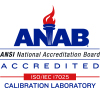 Posted on
Posted on

Food safety is incredibly important for food processors, one wrong move or lapse in protocol could lead to hundreds of people getting sick. A foodborne illness outbreak could result in financial and legal ruin for a business. That’s why since the 1960s, food processors have relied on the seven principles of Hazard Analysis Critical Control Points, or HACCP for short, to develop their safety plans and keep consumers healthy.
Did you know the origins of the now-standard practices date back to the first NASA space expeditions? It’s hard to imagine a place where food safety would be more important than the original 73-cubic-foot Apollo capsules that didn’t even have toilets. One bout with food poisoning when you’re thousands of miles from a doctor would have been disastrous for the first astronauts.
Food safety is obviously important for everyone, not just astronauts hurtling through space. HACCP’s seven principles form the foundation of food safety plans across the globe today and aim to keep biological, physical, and chemical hazards out of the food supply.
These principles are the steps businesses must follow when food is in their possession to limit risk of contamination from foodborne pathogens.
- Conduct a hazard analysis
- Identify critical control points
- Establish critical limits
- Monitor critical control points
- Establish corrective actions
- Establish record-keeping procedures
- Establish verification procedures
For food processors, one of the most critical points of HACCP is maintaining proper temperature controls. At any point between packaging, shipping, storing, cooking, and cooling, deviations from the critical temperature could occur, resulting in a loss of food quality. Unfortunately, it’s easy to lose track and almost impossible for a human to constantly monitor temperature limits or catch a rapid change in temperature quickly enough to take corrective actions.
This is where temperature data loggers and sensors come in to save the day for food processors and handlers. Data loggers can be implemented at any critical control point where a measurable critical limit must be met and maintained to eliminate or reduce food safety hazards.
MadgeTech offers a variety of data logging systems to provide food processors with continuous monitoring solutions. Wireless data loggers give users the ability to view real-time data and set custom alerts and notifications, eliminating the need for constant supervision. All MadgeTech data loggers come standard with the MadgeTech 4 Software, which provides a verifiable audit trail and proof of food safety compliance.
To learn more about implementing data loggers into your HACCP plan, click here, to view our guide. Need assistance find the right solution for your application? Call us at (603) 456-2011 or email [email protected].






